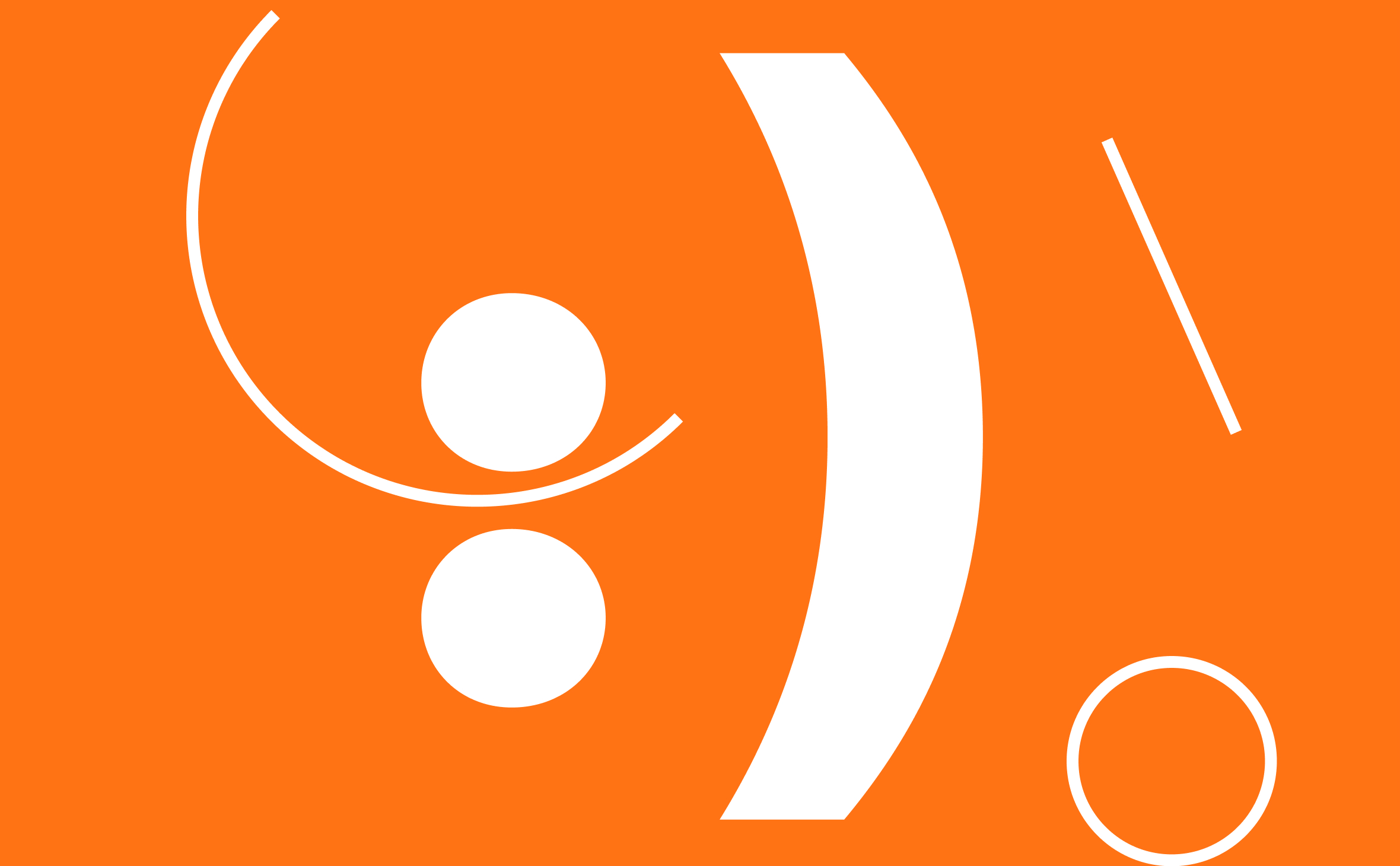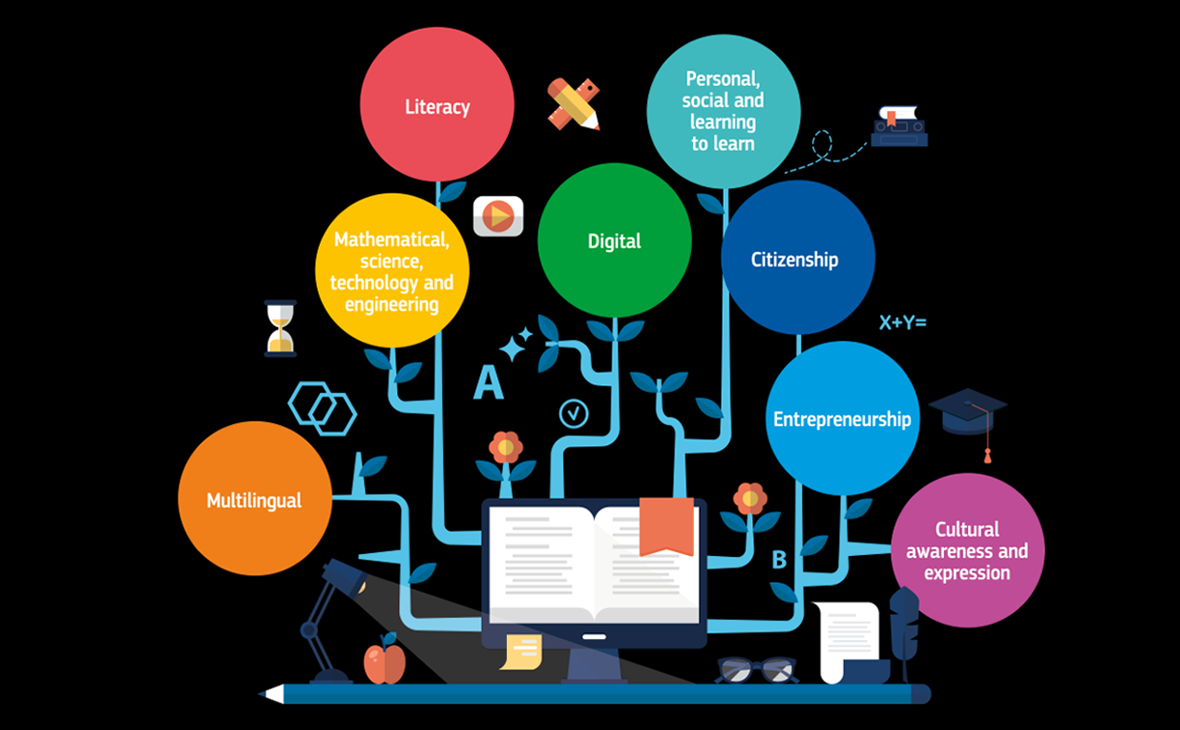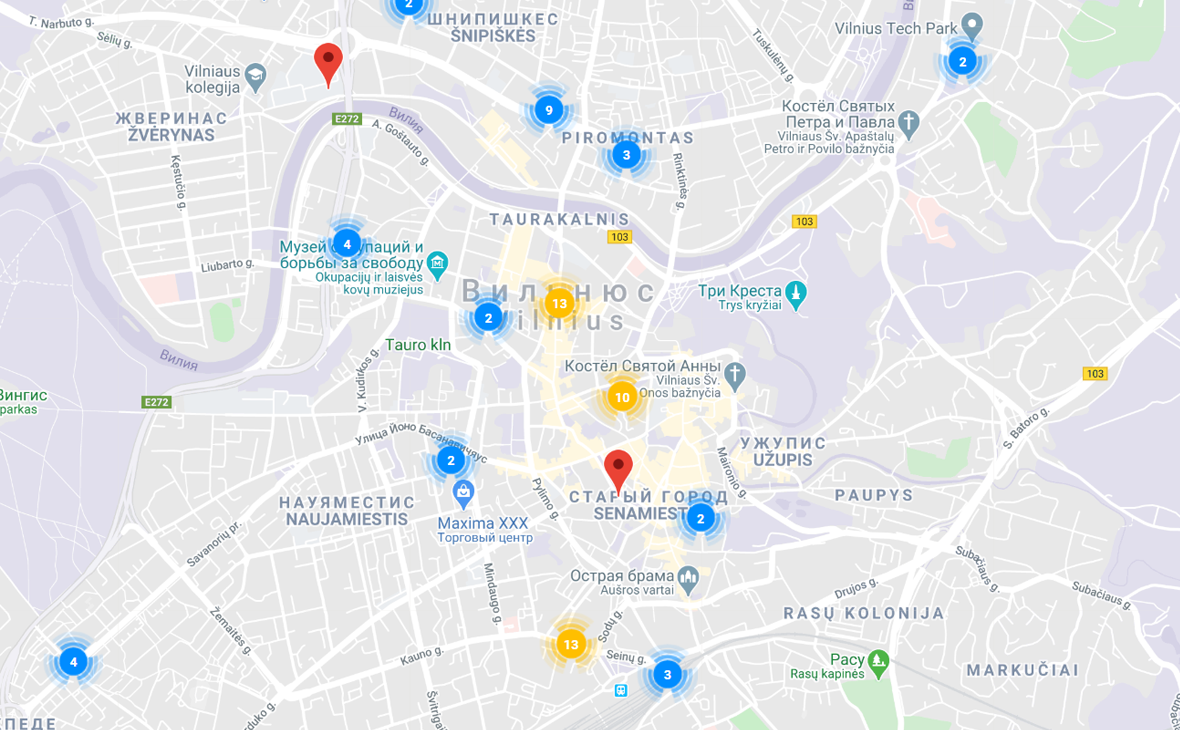What are soft skills
What are soft skills
Soft Skills
What Are Soft Skills?
Soft skills are character traits and interpersonal skills that characterize a person’s relationships with other people. In the workplace, soft skills are considered to be a complement to hard skills, which refer to a person’s knowledge and occupational skills. Sociologists may use the term soft skills to describe a person’s emotional intelligence quotient (EQ) as opposed to intelligence quotient (IQ).
Soft skills have more to do with who people are, rather than what they know. As such, they encompass the character traits that decide how well one interacts with others and usually are a definite part of an individual’s personality. In a competitive labor market, employees who demonstrate they have a good combination of hard and soft skills often see a greater demand for their services.
Key Takeaways
Understanding Soft Skills
Employers look for a balance of hard skills and soft skills when making hiring decisions. For example, employers value skilled workers with a track record of getting jobs done on time. Employers also value workers with strong communication skills and a strong understanding of company products and services. When communicating with prospective clients, workers with soft skills can put together compelling presentations even if their specific job is not in sales or marketing. Another valued soft skill is the ability to coach fellow coworkers on new tasks.
Company leaders often are most effective when they have strong soft skills. For example, leaders are expected to have good speaking abilities, but great leaders also are good at listening to workers and to other leaders in their fields.
Negotiation is a big part of the job for many company leaders. When negotiating with employees, clients, or associates, leaders need to be skilled in staying considerate of what others want while remaining focused on pushing for what they want. Good leaders also need to know how to make their own work most efficient by strategically delegating tasks to workers.
Companies often like to hire employees who possess soft skills that mesh well with the rest of the staff, considering them to be a good cultural fit for the company.
Hard Skills vs. Soft Skills
Workers acquire hard skills through formal education, training programs, and concentrated effort. Hard skills are the quantifiable skills workers need to have in order to successfully perform a specific job. Employers often test or evaluate a candidate’s hard skills before hiring. Examples of hard skills include computer programming, writing, web development, and graphic design. Some hard skills are more in-demand than others and employers may need to hire recruitment agencies or headhunters to fill jobs that require high-level skills.
Coaching is one of the most common and effective methods for improving soft skills.
Hard skills can be learned and perfected over time, but soft skills are more difficult to acquire and change. The soft skills required for a doctor, for example, would be empathy, understanding, active listening, and a good bedside manner.
Alternatively, the hard skills necessary for a doctor would include a vast comprehension of illnesses, the ability to interpret test results and symptoms, and a thorough understanding of anatomy and physiology.
Valuable Soft Skills for Employees
Soft skills benefit businesses when they are practiced on a company-wide basis. For example, a collaborative spirit among workers is important. Team members who are able to work well with people of different generations and backgrounds are generally more productive and better able to focus on common priorities. Efficiency and output improve when workers collaborate by sharing knowledge and tools to get jobs done. The ability to learn new methods and technologies also is a desired soft skill for all workers.
Companies that value learning as a soft skill recognize various learning styles and encourage workers to pursue the methods that work best for them. Good troubleshooting is a soft skill that also is valuable to companies. For example, companies can operate more efficiently and increase productivity when all workers know how to troubleshoot software problems instead of relying on the information technology (IT) department for every fix.
Soft skills can also be thought of as people skills. These can include good communication and interpersonal skills, leadership, problem-solving, your work ethic, time management, and teamwork. These are characteristics that can be carried over to any position.
What Is the Difference Between a Soft Skill and a Hard Skill?
Hard skills are the measurable skills acquired through training, education, and practice. They are the abilities needed to perform a specific task or job. Soft skills are behavioral and interpersonal skills that relate to how effectively people interact with others and handle situations.
Why Are Soft Skills Important?
How well you interact and treat others is crucial for career success. Trust develops through positive interactions and relationships, and productivity increases in environments where soft skills flourish.
How Do I Improve Soft Skills?
Although not customarily acquired through formal training, soft skills can be learned. To improve soft skills, the person must be open to feedback and make decisions to change behaviors. Training can provide tips and strategies for developing better practices, such as active listening and empathizing with others. And practicing can strengthen areas where deficiencies exist.
What Is Soft Skills Training?
Soft skills training is training to help develop or improve interpersonal skills. It consists of lessons to improve communication, increase active listening, resolve conflicts, and more.
Hard Skills vs. Soft Skills: What’s the Difference?
Melissa Ling / The Balance
During the job application and interview process, employers look for applicants with hard skills and soft skills. Successful candidates will make sure to put both skill sets on display. In order to do so effectively, it helps to understand the difference between these two types of skills.
Review the differences between hard and soft skills, what employers look for, how to highlight your skills, and examples of each type of skill.
What Are Hard Skills?
Hard skills are teachable abilities or skill sets that are easy to quantify. Typically, you’ll learn hard skills in the classroom, through books or other training materials, or on the job. These hard skills are often listed in your cover letter and on your resume and are easy for an employer or recruiter to recognize. Hard skills include:
What Are Soft Skills?
Soft skills, on the other hand, are subjective skills that are much harder to quantify. Also known as «people skills» or «interpersonal skills,» soft skills relate to the way you relate to and interact with other people. Soft skills include:
Unlike hard skills, it’s hard to point to specific evidence that you possess a soft skill. If an employer is looking for someone who knows a programming language, you can share your grade in a class or point to a program you created using the language. But how can you show that you have a work ethic or any other soft skill?
Show, Don’t Tell
Make note of your soft skills and point out some concrete instances where you’ve used them.
Just saying you have the skill isn’t very meaningful. Instead, your best bet is to demonstrate that you possess this quality by sharing examples of times when you used it.
Watch Now: 6 Soft Skills Every Employer Wants
Top Skills Employers Look For
While certain hard skills are necessary for any position, employers increasingly look for job applicants with certain soft skills. That’s because it’s generally easier for an employer to train a new employee in a hard skill (such as how to use a certain computer program) than to train an employee in a soft skill (such as patience).
Get to Know the Top Skills Employers Are Seeking
Analytical skills, communication skills, interpersonal skills, and leadership skills are among the top skills employers look for from prospective employees.
Employers are increasingly looking for candidates with hybrid skills, which are a combination of soft and technical skills. Candidates with this skill set are very competitive in a continually evolving, technologically-focused economy.
If you possess the top skills employers seek in candidates for employment, incorporate them into your resume and cover letters and mention them during job interviews.
Emphasize Both Hard and Soft Skills
Since they’re both important, emphasize both your hard and soft skills during the job application process. This way, even if you lack a hard skill required by the company, you can emphasize a particular soft skill that you know would be valuable in the position.
For example, if the job involves working on a number of group projects, emphasize your experience and skill as a team player and your ability to communicate with team members.
Skills to List and Avoid
The type of skills to highlight on resumes, cover letters, and during interviews vary depending upon the type of job for which you’re applying. If you’re seeking an administrative job, for instance, communication skills, customer service skills, experience crafting business correspondence, and stenography are helpful skills to list.
If the position is managerial related, it’s important to demonstrate supervision experience and leadership skills like the ability to delegate and problem-solve. Interpersonal skills such as empathy, patience, and diplomacy are also important traits to possess.
Reading the job description carefully will give you a sense of the type of job-specific skills an employer is looking for in applicants.
What you won’t find in that description, however, are the skills not to list, including proficiency with software or technology that is no longer relevant like MS-DOS or Lotus 1-2-3. The same goes for skills that you do not possess or are otherwise unrelated to the job in question. Experience as a graphic designer, for example, wouldn’t necessarily be applicable to a position in human resources.
How to Highlight Your Skills
To make sure potential employers are aware of your skills, highlight them on your resume and cover letter. Weave in mentions of your skills during job interviews.
Top Soft Skills Employers Value With Examples
Ran Zheng / The Balance
Candidates with strong soft skills are in high demand for many different types of jobs. What are soft skills, and why are they so important?
Soft skills are the interpersonal attributes you need to succeed in the workplace. They are how you work with and relate to others—in other words, people skills.
What Are Soft Skills?
Soft skills are the skills that enable you to fit in at a workplace. They include your personality, attitude, flexibility, motivation, and manners. Soft skills are so important that they are often the reason employers decide whether to keep or promote an employee.
Soft skills are different from hard skills (also known as technical skills), which are directly relevant to the job to which you are applying. These are often more quantifiable, and easier to learn than soft skills.
A hard skill for a carpenter, for example, might be the ability to operate a power saw or use framing squares. A soft skill would be the ability of the carpenter to communicate effectively with coworkers and clients.
Regardless of the job to which you’re applying, you need at least some soft skills.
In order to succeed at work, you must get along well with all the people with whom you interact, including managers, co-workers, clients, vendors, customers, and anyone else you communicate with while on the job. These are the types of skills all employers value.
Employers want employees who are able to interact effectively with others. These skills are also very hard to teach, so employers want to know that job candidates already have the soft skills to be successful.
List of Top Soft Skills
Below is a list of the most important soft skills employers look for. The list includes sublists of related soft skills that employers tend to seek in job applicants.
Develop these skills and emphasize them in job applications, resumes, cover letters, and interviews.
Showing the interviewer that you have the skills the company is seeking will help you get hired.
Communication
How well do you communicate? Communication skills are important in almost every job. You will likely need to communicate with people on the job, whether they are clients, customers, colleagues, employers, or vendors. You will also need to be able to speak clearly and politely with people in person, by phone, and in writing.
You will also likely need to be a good listener. Employers want employees who can not only communicate their own ideas, but who also listen empathetically to others. Listening is a particularly important skill in customer service jobs.
Critical Thinking
No matter what the job, employers want candidates who can analyze situations and make informed decisions. Whether you are working with data, teaching students, or fixing a home heating system, you need to be able to understand problems, think critically, and devise solutions. Skills related to critical thinking include creativity, flexibility, and curiosity.
Leadership
While not every job opening is a leadership role, most employers will want to know that you have the ability to make decisions when push comes to shove, and can manage situations and people. The ability to step up to the plate in a difficult situation and help resolve it is something employers look for in prospective employees
If you are interviewing for a job that has the potential for advancement, the employer will want to know that you have what it takes to become a leader.
Other skills related to leadership include the abilities to resolve problems and conflicts between people, and to make executive decisions.
Positive Attitude
Employers are always seeking people who will bring a positive attitude to the office. They want employees who will be friendly to others, eager to work, and generally a pleasure to be around. Being able to keep things positive is especially important if you’re working in a fast-paced, high-stress work environment.
Teamwork
Hiring managers look for job candidates who can work well with others. Whether you will be doing a lot of team projects or simply attending a few departmental meetings, you need to be able to work effectively with the people around you. You need to be able to work with others even if you do not always see eye to eye.
Some skills related to teamwork include the ability to negotiate with others, and to recognize and appreciate diversity in a team. Another related skill is the ability to accept and apply feedback from others.
Work Ethic
Employers look for job candidates with a strong work ethic. Such people come to work on time, complete tasks in a timely manner, and stay both focused and organized.
They are able to budget their time and complete their work thoroughly. While they can work independently, people with a strong work ethic can also follow instructions.
A strong work ethic is difficult to teach, so employers will be impressed if you can demonstrate it in your job application.
More Soft Skills
Here are additional soft skills for resumes, cover letters, job applications, and interviews. Required skills will vary based on the job for which you’re applying, so also review our list of skills listed by job and type of skill.
How to Make Your Skills Stand Out
Add Relevant Skills to Your Resume: Include the terms most closely related to the job in your resume, especially in the description of your work history.
Highlight Skills in Your Cover Letter: You can incorporate soft skills into your cover letter. Include one or two of the skills mentioned here, and give specific examples of instances when you demonstrated these traits at work.
Use Skill Words During Job Interviews: You can also use these words in your job interviews. Keep the top skills listed here in mind during your interview, and be prepared to give examples of how you’ve used each. Each job will require different skills and experiences, so make sure you read the job description carefully and focus on the skills listed by the employer.
Top Soft Skills for 2022 [90+ Examples for Your Resume]
Soft skills are core skills sought after in every profession.
Whether you’re a server in a restaurant or a big-shot CEO, your soft skills will be as decisive for your success as your technical know-how.
And these are just a few out of many!
But you might be wondering which soft skills are relevant for YOUR career? And which ones should you focus on developing?
This is where this article comes in!
What Are Soft Skills?
Soft skills consist of a combination of people, social, and communication skills, character traits, attitudes, and mindsets, as well as social and emotional characteristics, among others, which are sought for in all professions.
Some examples of soft skills include:
Soft Skills Vs Hard Skills
There are two types of skills: hard skills and soft skills.
Hard skills, also referred to as measurable abilities, include anything from mastering Photoshop to emergency care knowledge. You obtain hard skills through your education, training, certifications, and professional experience.
Soft skills, also called people skills, are the mix of social and interpersonal skills, character traits, and professional attitudes that all jobs require. Teamwork, patience, time management, communication, are just a few examples. Soft skills can be personality traits or they can be traits obtained through life experiences.
Usually, you’d include both hard and soft skills in your resume as follows:
But for the most part, skills are something a recruiter learns about you through an interview.
A good resume includes both soft and hard skills. Check our article on How to List Skills in Your Resume to learn how to do it right.
Top 10 Soft Skills Employers Love (For Any Profession)
Soft skills can tell a lot about how a candidate will interact in the workplace, how they might react under pressure, or what their professional potential is.
As such, a lot of employers prioritize hiring employees with the right soft skills over hard skills.
But which soft skills are really important, and which ones are less so?
In 2022, the most in-demand soft skills are as follows:
#1. Time Management
Time management involves the ability to use your time wisely to work as efficiently as possible. Some sub-skills related to time management are:
#2. Communication
Communication is the ability to convey or share ideas and feelings effectively and it’s among the top soft skills employers require across all fields.
#3. Adaptability
Your adaptability shows how well you can embrace change and adjust to it.
Companies and work environments constantly change: new team members come in, old ones leave, companies get bought or sold, and so on.
So, you need to be able to adapt to different situations at your workplace.
Here are some skills related to adaptability:
#4. Problem-solving
Being able to analytically and creatively solve problems will come in handy no matter your job.
After all, there’s no job in the world where you won’t have any problems to deal with. That is why creative problem-solvers are always in high demand.
These are the skills associated with problem-solving:
#5. Teamwork
Teamwork will never cease to be a must-have soft skill. It helps you work effectively in a group and accomplish tasks. Examples of skills related to teamwork are:
#6. Creativity
We’re used to linking creativity with fields like art, or design, but creativity is a broad term that involves several sub-skills from questioning to experimenting. As such, any professional can make just as much use of creative skills as artists.
Here are some examples of creative skills:
#7. Leadership
Leadership refers to the ability to mentor, train, or guide. No matter the industry, employers prefer to hire applicants who show they have leadership potential for 2 reasons:
Skills related to leadership include:
#8. Interpersonal Skills
Interpersonal skills are all about how well you interact with others, tend after relationships, and make a positive impression on those around you.
#9. Work Ethic
Work ethic relates to valuing work and putting in the effort to yield results. It’s a soft skill that employers in literally every job you’ll ever apply for will appreciate. Some soft skills related to work ethic are:
#10. Attention to Detail
Some other soft skills related to attention to detail are:
90+ Soft Skills Examples for 10 Careers
Now sure which soft skills are good to mention for your profession?
Below, we compiled a list of 90+ best soft skills for 10 different career paths. Just find the one that’s relevant for you and plug the skills into your resume!
#1. Customer Service
Customer service is all about soft skills, especially since it involves dealing with people. Be it in person, over the phone, or on the internet, your ‘people skills’ need to be on point if you are to work with demanding customers.
Here are some of the most popular soft skills in customer service:
#2. Healthcare
A career in healthcare takes years of studying, a lot of training, and a variety of hard skills. At the same time, healthcare workers also need to be able to work well under pressure or pay close attention to detail.
Studies pointing to the importance of empathy in providing quality care, for example, are among many highlighting how soft skills are essential in developing a patient-centered approach.
Here are some other examples of soft skills in healthcare:
#3. Digital Marketing
Marketing surely is one of the most popular career choices, but the fast development of new technologies and the transition to online work have brought digital marketing under the spotlight too.
But just because the industry utilizes digital technologies to market products and services doesn’t mean a career in digital marketing doesn’t require its own set of soft skills.
Here are 10 essential soft skills for a career in digital marketing:
#4. Management
An essential task of a successful manager is to coordinate and administer human resources. This makes soft skills all the more important for any type of management role.
Here are some examples of what’s required from managers in terms of soft skills:
#5. Education
Keeping up with the times is essential for a career in education since you mostly get to deal with younger people. This involves continuously upgrading your hard skills, especially when it comes to new teaching methods and online learning.
The soft skills required from an educator, on the other hand, haven’t changed drastically over time. Here are some of the most popular ones:
#6. Sales
Let’s look at ten soft skills required for a sales professional:
#7. Design
Being a successful designer is about a lot more than just remote design work behind your PC screen. In addition to creativity and attention to detail, a designer needs to be an active listener and open to feedback to bring the client’s vision to life.
Here are the top soft skills for any designer:
#8. Accounting
Maybe accounting and soft skills don’t feel like the right mix of words, but a career in accounting also requires its own set of soft skills.
Here’s what they boil down to:
#9. Business Analytics
Another in-demand profession in today’s digital world, business analysts are tasked with balancing and combining business knowledge with advancing technologies.
Here are the soft skills required from a business analyst:
#10. Web Development
Being good at C++ or Java is not all it takes to make a career in web development. There are several soft skills required from developers too, such as creativity and problem-solving.
In other cases, developers are required to collaborate with designers to bring an idea to life, and that’s where active listening comes in.
The top soft skills for web developers consist of the following:
If you’re looking for more soft skills to put on your resume, get inspired from these 100+ essential skills to put on your resume!
How to List Soft Skills On Your Resume
The way you list your skills on your resume matters.
For example, you need to ensure that you’re listing the right soft skills in the first place (and that they’re relevant for the role you’re applying for).
So, here are our top 4 tips on how to list your soft skills in your resume and get an edge over the competition.
#1. Tailor Soft Skills to the Job
The more job-specific you are with the skills on your resume, the better.
What we mean by this is, you should only list skills that are relevant to the position.
For example, if you’re applying to be a server, you probably won’t need problem-solving and critical thinking skills as much as effective communication and teamwork.
Let’s assume you’re applying for a sales manager position. The requirements are:
You just got four skills tailored to the job just by reading the requirements:
#2. Back-Up Soft Skills With Other Sections
Anyone can mention that they have amazing critical thinking and leadership skills in their resume.
Unless they back this up with some facts and experiences, though, the recruiter won’t take you seriously.
Now, this may not be as easy as tailoring them to the job, but there are certainly ways around it.
Let’s say you’re applying as a creative director for an advertising agency.
Your required soft skills would probably include some of the following:
Afterward, you’d back them up as follows:
When listing your work experiences, mention achievements or responsibilities that show off these soft skills.
For example, to show off your project management skills, you can write:
Or, to showcase your creativity, you can include the following bit:
Conceptualized and pitched an ad idea that went on to win the Epica Award.
There’s a lot more to creating a compelling resume than listing your skills the right way. Check out our complete guide on how to write a resume to learn more.
#3. Use Transferable Skills When Switching Careers
Transferable skills can be particularly useful if you’re switching careers or changing directions within the industry. They include skills that are not job-specific, but still useful to the position.
Let’s assume you are leaving your job as a news reporter and applying for a Public Relations position. Although the industries are different, both are communications-related professions.
This means you can list some relevant soft skills acquired as a reporter on your new resume to show you’re not completely unfamiliar with the job.
As a news reporter, your soft skills can include (but are not limited to):
These are all skills you can easily ‘transfer’ into your PR resume and show you can take on the change.
Soft Skills FAQ
Still have some questions about soft skills?
Check out our FAQ below!
1. How are soft skills essential for career growth?
Soft skills consist of people and social skills, as well as career attributes, that define how you interact in the workplace, handle the responsibility or seek improvement, among others. As such, they are important for career growth no matter your industry, and employers often prioritize hiring employees with the right soft skills over hard skills.
2. How are soft skills different from hard skills?
Hard skills are measurable skills that you obtain through your education, training, certifications, and professional experience. Soft skills, on the other hand, can be personality traits or they can be obtained through life experiences. All professions require a mix of both.
3. What are recruiters’ top 10 soft skills?
The top 10 soft skills all recruiters love despite your profession are the following:
4. Can soft skills be acquired?
Soft skills are non-technical skills, such as people, social skills, and career attributes, they’re not something that can be taught in an afternoon.
5. Can you put soft skills on a resume?
Yep! Soft skills go under the “Skills” resume section.
When listing your skills, we recommend you add a skill level to them (e.g. beginner, intermediate, etc.). This way, the recruiter has a much better idea of how well you know any given skill.
Key Takeaways
Phew! And that wraps up everything you need to know about soft skills and your career.
Now, let’s do a quick recap of the most important points we covered in this article:
Что такое soft skills и как их развивать. Полный гид
При создании гида по soft skills нам помогали эксперты из:
Аудиоверсия материала:
Теперь материалы РБК Трендов можно не только читать, но и слушать. Ищите и подписывайтесь на подкаст «Звучит как тренд» в Apple Podcasts, «Яндекс.Музыке», Castbox или на другой платформе, где вы слушаете подкасты.
Что такое Soft Skills и почему это важно
В простой модели профессиональных компетенций навыки разделяют на soft skills (гибкие) и hard skills (жесткие).
Soft skills — надпрофессиональные навыки, которые помогают решать жизненные задачи и работать с другими людьми.
Независимо от специальности вам понадобятся хотя бы несколько «гибких навыков». Чтобы добиться успеха на работе, нужно уметь хорошо ладить с коллегами, клиентами, менеджерами и начальниками. Soft skills нельзя научиться на тренинге или курсе, они закладываются в детстве и развиваются в течение всей жизни. Поэтому работодатели особенно ценят людей, у которых они хорошо развиты. Soft skills полезны в любых сферах, формируются в детстве и связаны с эмоциональным интеллектом.
Hard skills — узкие профессиональные навыки, которые нужны для решения конкретных задач в повседневной работе.
Например, для дизайнера «жесткими навыками» будут владение графическими редакторами, а для плотника — умение обращаться с электролобзиком. Жесткими навыками можно овладеть за несколько недель, а их эффективность — измерить. Hard skills нужны под конкретные задачи, формируются в процессе обучения и основаны на технических знаниях.
Ученые из Гарварда, Стэнфорда и Фонда Карнеги выяснили [1], что «гибкие навыки» — это 85% успеха человека в профессии, жесткие составляют только 15%.
В 2017 году Google провела внутреннее исследование [2], чтобы определить самые продуктивные команды внутри компании. Исследователи обнаружили, что их лучшими командами были смешанные группы сотрудников с сильными «гибкими навыками». Дальнейшие исследования показали, что на успех работы повлияли развитые навыки коммуникации, эмпатии и лидерства.
Гибкие и жесткие навыки должны дополнять друг друга, чтобы решать задачи разной сложности. Например, графическому дизайнеру будет полезно освоить soft skills: общение, креативное мышление, эмпатию и hard skills: владение Adobe Photoshop, Sketch, Figma.
Какие soft skills развивать, где использовать и как прокачивать
Вместе с Анной Аполосовой, федеральным тренером Ассоциации тренеров РСМ составили список из 14 важных «гибких навыков», которые помогут не потеряться в будущем. Рассказываем, что это за soft skills, где пригодятся и как их развивать:
1. Коммуникация
Коммуникация — это передача информации, обмен знаниями или сведениями между людьми. Например, приветствие, короткий разговор или покупка товаров в магазине. Коммуникация помогает налаживать контакты, чтобы удовлетворять человеческие потребности, выполнять жизненные и профессиональные задачи. В ближайшие десятилетия люди точно будут общаться друг с другом, поэтому навык будет актуальным независимо от изменений способов коммуникации. В блок коммуникации входят два важных навыка:
Деловое общение — умение вести переписку и переговоры с коллегами, клиентами и руководителями, чтобы решать задачи и добиваться поставленных целей. Как говорил миллиардер Уоррен Баффетт: «Не уметь общаться — равно что подмигивать девушке в темноте».
Презентация и ораторское искусство — умение понятно и четко говорить, доносить свои идеи до других людей, чтобы вас понимали и запоминали.
Как развить. Больше общайтесь с конкретной целью, например, проведите переговоры с клиентом, презентации или лекции. Вступите в клуб дебатов или запишитесь на курсы переговорщиков. Устраивайте дискуссии и деловые игры с друзьями или коллегами.
Что изучить о коммуникации:
2. Критическое мышление
Критическое мышление — способность взвешенно подходить к переработке и потреблению информации. Мы постоянно находимся в информационном потоке. В нем легко потеряться, потерять фокус внимания или стать жертвой манипуляций. Навык помогает проверять информацию, искать взаимосвязь между фактами, рационально мыслить, принимать верные решения и сформулировать сильные аргументы.
Как развить. Развивайте логику и наблюдение. Попробуйте определить ролевые модели поведения коллег на работе. Понаблюдайте, как они реагируют на входящую информацию. Учитесь задавать вопросы. Применяйте методики критического мышления на новостях. Например, начните с простых методик проверки информации «5W+H» или IMVAIN:
Что изучить о критическом мышлении:
3. Клиентоориентированность
Клиентоориентированность — умение вовремя определять потребности и желания своей аудитории, чтобы удовлетворять их с максимальной пользой. Например, если у вашего клиента нет времени идти в магазин, вы можете доставить товар ему домой. Клиент увидит заботу и сэкономит время, а вы получите лояльного покупателя. Навык помогает конкурировать на рынке труда, товаров и услуг. В стране с развивающейся рыночной экономикой это особенно ценно.
Как развить. Проанализируйте свою целевую аудиторию. Например, если устраиваетесь на работу — это будут HR, руководители отделов и директора. Подумайте, какие проблемы с соискателями у них бывают, как вы можете их решить. Изучайте аудитории разных сфер вашей жизни, помогайте удовлетворять запросы и закрывать проблемы этих людей.
Что изучить о клиентоориентированности:
4. Управление проектами
Проекты везде. Сделать сайт, построить дом, организовать путешествие — всё это проекты. Вокруг проекта собираются разные люди, например, клиент, помощники, подрядчики, внешние силы в виде государства. Человек, который управляет проектами, стоит в середине системы. У него есть рычаги и связь со всеми ее компонентами. Именно от него зависит, каким получится проект. Бизнес, НКО и госорганы в России переходят на проектное управление, поэтому умение управлять проектами становится необходимым для людей всех возрастов.
Том Вуйец на выступлении TED «Построишь башню — создашь команду» делится результатами исследования «задачи с зефиром».
Как развить. Представьте свои текущие дела в виде проектов. Обозначьте цель, сроки, этапы. Подумайте, как можно оптимизировать свои проекты: получить больше пользы или сэкономить ресурсы. Например, если часто опаздываете на работу, заранее приготовьте одежду и еду на утро или смените маршрут.
Что изучить об управлении проектами:
5. Наставничество и менторинг
Традиционная система образования жесткая и неповоротливая. В ней есть разрыв между компетенциями, которые мы получаем в университете и тем, что требуется на реальной работе. Чтобы быстрее вырасти профессионально и адаптироваться к требованиям рынка нужен наставник или ментор.
Наставник поможет составить план обучения и следить за результатами. С ним работают регулярно, чтобы видеть прогресс и корректировать свое обучение. Если сами станете наставником, сможете делиться умениями и знаниями с другими людьми, которым нужна эта компетенция. Адаптировать команду к задаче, проекту или рабочему месту.
Как развить. Подумайте, какие компетенции нужно прокачать, как эффективнее это сделать. Составьте себе план обучения на год. Следуйте ему, фиксируйте результаты. Когда научитесь управлять своим обучением, предложите коллегам или друзьям стать их ментором на некоторое время. Так отработаете навык и поможете другим людям.
Что изучить о наставничестве:
6. Ненасильственное общение
Ненасильственное общение (ННО) — метод четко, понятно и точно доносить до собеседника информацию и добиваться своего. В ненасильственном общении вы сообщаете собеседнику наблюдение, подкрепляется его фактом, говорите о своей потребности и формулируете просьбу. Так вы не причините людям вреда, удовлетворите свои потребности, определите насильственную коммуникацию в свой адрес и вовремя ее остановите. Навык помогает договариваться в коллективных совещаниях, личном общении с коллегами и близкими. Главное — не переборщить с мягкостью, неуверенностью выражений, что чревато потерей авторитета и доверия к вам.
Автор базовой книги по ННО Маршалл Розенберг предлагает ясно формулировать каждый из четырех компонентов ненасильственного общения. Без оценок, суждений и перекладывания ответственности.
Как развить. Научитесь понимать себя и относитесь к людям с сопереживанием. Применяйте методику ненасильственного общения с друзьями, чтобы безопасно отработать ее на практике. Посещайте встречи и тренинги по ННО, где люди учатся общаться без насилия. А еще — прочитайте нашу статью о том, как применять ННО в жизни.
Что изучить о ненасильственном общении:
7. Принятие решений
Принятие решений — способность осознанно выбирать лучшее решение из возможных вариантов. Этот навык помогает быстро и с максимальной пользой достигать своих целей. Например, если вам предложили две интересные вакансии, но вы не знаете, какую выбрать — можете упустить обе.
Как развить. Чтобы развить навык принятия решений, нужно научиться видеть максимальное количество вариантов, верно расставлять приоритеты в каждой конкретной ситуации и выбирать лучшее из возможного. Если возникают сложности на работе, обращайтесь к руководителю с решением, а не проблемой.
Что изучить о принятии решений:
8. Решение проблем
Если что-то идет не так, вы можете жаловаться или принимать меры. Навык решения проблем помогает справляться с трудностями на работе и в жизни. Чем сильнее его прокачиваете, тем более сложные ситуации вам будут по плечу. Решение проблем похоже на управление проектами и принятие решений — вы преодолеваете трудности, чтобы достичь целей и получить результат.
Экономист Нави Раджу делится тремя принципами создания большего с минимальными затратами.
Как развить. Обозначьте несколько главных проблем в вашей жизни и придумайте 20—30 решений для каждой. Установите срок и попробуйте реализовать каждое из них за это время. Если решить проблему не сможете, придумайте новые способы с ней справиться. Помните, что главное в проблеме — найти решение.
Что изучить о решении проблем:
9. Эмоциональный интеллект
Эмоциональный интеллект — способность понимать эмоции, мотивацию, намерения свои и других людей и управлять всем этим. Навык помогает решать практические задачи, принимать решения и строить коммуникацию с другими людьми. Например, если во время своей презентации вы видите, что слушатели устали — сделайте перерыв.
Как развить. Чтобы прокачать эмоциональный интеллект, нужно развивать эмпатию по отношению к себе и другим людям. Понаблюдайте за своими эмоциями и эмоциями других. Подумайте, с чем они связаны, и как влияют на окружающих. Попробуйте контролировать себя и принимать лучшие решения, основанные на наблюдениях.
Что изучить об эмоциональном интеллекте:
10. Управление знаниями и обучаемость
Обучаемость — способность узнавать новую информацию и применять ее в жизни, чтобы решать повседневные задачи. Знания формируют умения, а умения — навыки. Важно не собирать концепции и теории, а применять их на практике, превращая в полноценные компетенции. Управление знаниями помогает выбирать нужные источники информации, сортировать ее и управлять планом обучения.
Как развить. Составьте план обучения, отфильтруйте нужную информацию, выберите знания, которые хотите применить на практике. Теории и концепции обучения важно проживать, пробовать на себе и анализировать. Например, если узнали о матрице управления временем, попробуйте ее в жизни.
Что изучить об управлении знаниями:
11. Работа в режиме неопределенности
Современный мир описывают аббревиатурой VUCA. Это мир нестабильности (volatility), неопределенности (uncertainty), сложности (complexity) и неоднозначности (ambiguity), и нам придется в нем жить. Работа в режиме неопределенности — умение быстро реагировать на изменения условий задачи, принимать решения, управлять проектами и своими ресурсами. Чтобы конкурировать на рынке и быть востребованным, нужна гибкость и умение быстро адаптироваться к изменениям. Например, в навык работы в режиме неопределенности входит стресс-менеджмент.
Стресс-менеджмент — управление состоянием и поведением своим и других людей в периоды физического и психологического напряжения: сжатых сроков, форс-мажоров, сильных нагрузок.
Как развить. Нужно развивать самостоятельность. Придумывайте выходы из разных трудных ситуаций, пробуйте подходы, которыми раньше не пользовались. Пробуйте новые инструменты: Телеграм, онлайн-форматы обучения, удаленную работу. Следите за трендами и новыми технологиями, выбирайте то, что подходит вам. Откройте собственный бизнес или запустите блог. Продумайте пути его развития в разных обстоятельствах: когда всё идет хорошо, в кризис, когда много конкурентов или нет желания им заниматься.
Что изучить о работе в режиме неопределенности:
12. Бережливое производство
Бережливое производство — умение устранять потери любого рода, искать узкие места и улучшать процесс создания чего-либо. Навык помогает экономить ресурсы конкретного человека или целого производства. Например, если правильно рассчитываете свою нагрузку — вы не выгораете, поэтому успеваете сделать больше и лучше. Навык необходим предпринимателям, которые связаны с мелким, средним или крупным производством.
Как развить. Организуйте собственное пространство: рабочий стол, компьютер, квартиру. В бережливом производстве есть технология 5S — удаление ненужного, самоорганизация, соблюдение чистоты, стандартизация процессов, совершенствование порядка. Начните с нее — наведите порядок в шкафах, создайте свою систему хранения и сортировки вещей, мусора и информации.
Сортируйте письма и файлы на компьютере и в телефоне, сделайте свое пространство удобным. Чем лучше будут ваши системы, тем лучше разовьете навык. Спланируйте свои задачи через канбан или скрам-доску.
Что изучить о бережливом производстве:
13. Экологическое мышление
Экологическое мышление — это способность осознанно относиться к происходящим событиям без вреда для себя и окружающих. Экологическое мышление предполагает ответственность за свои действия и позитивное отношение к миру. Навык помогает увлекаться своим делом и получать удовлетворение от результата. Например, если в проекте сдвигаются сроки — вы не паникуете, а ищете решение проблемы. Быстрее преодолеваете трудности и стремитесь закончить работу качественно.
Как развить. Развивайте в себе проактивное мышление, вместо реактивного. Например, если вам нагрубят в очереди, вы не грубите в ответ, а сначала думаете и решаете: стоит ли грубить в ответ. Если от этого никому лучше не станет, значит отвечать не стоит.
Экологично относитесь к ресурсам, которые расходуете дома: ведите раздельный сбор мусора, выключайте воду, когда чистите зубы, покупайте меньше пластика или сдавайте одежду в переработку.
Что изучить об экологическом мышлении:
14. Саморефлексия
Саморефлексия — это самостоятельный анализ своих поступков, поведения, деятельности. Она помогает оценить свои действия, осознать их и принять решение, что делать дальше. Например, если вы никак не можете наладить отношения с коллегами, саморефлексия поможет найти ошибки в общении с вашей стороны. Этот навык развивает осознанность — вы будете принимать более взвешенные решения, если знаете себя и осознаете свои потребности.
На каждом этапе обучения нужно осознанно ставить цели. Навык целеполагания помогает их формулировать и достигать. В отдельном материале мы подробно рассказали, как работать с целями для своего обучения и представить его в виде проекта:
Как развить. Понаблюдайте за собой: отмечайте детали поведения и поступков. Попробуйте вести дневник — записывайте туда впечатления о прожитом дне, инсайты и анализ своего поведения. Каждый день записывайте людей, которым вы благодарны за что-либо в своей жизни.
Что изучить о саморефлексии:
Как понять, какие soft skills нужны лично мне?
Чтобы понять, какие soft skills вам нужны:
А сложно развить гибкие навыки?
Чтобы сформировать навык, нужно получить знания и отработать их на практике. Знания — это информация, которую мы получаем и запоминаем для себя. Источников знаний много: книги, статьи, лекции, личное общение, советы наставника. Для примера возьмем вождение автомобиля. Изучение устройства машины, правил дорожного движения и теория вождения — это знания.
Применение знаний на практике, первый и еще не отработанный опыт — умение. Умением будет поездка на автомобиле по городу или учебной площадке. Это то, с чем мы получаем права, навык еще не сформирован.
Навык сформируется, когда умение дойдет до автоматизма — мы научимся выполнять задачу одинаково хорошо, не теряя в качестве, вне зависимости от изменения внешних условий. Уверенное вождение независимо от погоды, аварийных ситуаций и других внешних факторов — это навык.
У каждого «мягкого» навыка свои уровни и критерии развития. Чем больше вы практикуетесь, тем лучше развиваются навыки. Главное — получать обратную связь и анализировать прожитый опыт, иначе вы будете стоять на месте.
Как понять, на каком уровне развития гибкие навыки
Оценить уровень развития навыков и компетенций помогают методики ассессмента. Эксперт по обучению взрослых, тренер АРТы Инна Попова предлагает определить, из чего состоит компетенция и выбрать шкалу уровня ее развития. Каждую компетенцию описывают через комплекс индикаторов, в которых она проявляется.
Хороший пример детального описания компетенций по уровням показывают в книге «Знать или уметь» [3]. Здесь авторы представляют модель 6К, дополняя модель 4К уверенностью в себе и преодолением неудач «confidence», работой с информацией и эрудицией «content». Каждая компетенция детально разложена на четыре уровня.
Возьмем пример — коммуникативную компетенцию. Первый уровень коммуникации — проявление эмоций, типичный для детей и некоторых управленцев в состоянии стресса. Второй уровень хорошо иллюстрирует диалог из «Криминального чтива». Героиня Умы Турман — Миа Уоллес спрашивает героя Джона Траволты — Винсента Вегу: «Ты слушаешь? Или просто ждешь, когда можно заговорить?» Вега отвечает: «Я жду, когда можно будет сказать, но пытаюсь слушать».
На третьем уровне выстраивается полноценный диалог, появляется умение слушать вторую сторону. Здесь общение предполагает, что мы как минимум учитываем образ мышления слушателя. На четвертом уровне коммуникации мы способны «увидеть» скрытый подтекст.
Авторы книги Роберта Голинкофф и Кэти Хирш-Пасек приводят индикаторы проявления каждой компетенции у детей, взрослых, в деловой среде.
Инструменты оценки soft skills
Youthpass. В конце обучения участникам часто вручают сертификаты. В Youthpass сертификаты используют для оценки результатов неформального образования в программе Erasmus+. Одна часть сертификата подтверждает участие в проекте. Вторая помогает участнику определить, как изменились его восемь ключевых компетенций [4] по итогам образовательного мероприятия. Тренер создает пространство для рефлексии, тем самым помогает участнику самостоятельно оценить свои компетенции.
Open badges, Mozilla и badgecraft. В 2010 году Mozilla представила образовательные бейджи — показатели достижения, навыка или качества. Их используют для мотивации, постановки образовательных целей или виртуального резюме компетенций. На бейдже указывают организацию, которая его выдавала, «оценщиков компетенции» и достижения человека.
В системе формального образования преподаватель оценивает компетенции учеников. В неформальном образовании бейджи может выдавать любой: организатор курса, одногруппник, эксперт, коллега и сам участник. Система бейджей создает особую образовательную среду, помогает в альтернативных каналах обучения.
Appraiser. Международная гильдия молодежных тренеров разработала платформу Appraiser для оценки компетенций членов сообщества. Каждую компетенцию тренера разбили на показатели, которые он определяет, как сильные стороны или зоны роста. Например, обучаемость включает развитие через обратную связь, умение оценивать собственные компетенции и находить ресурсы для своего обучения. Сумма показателей сильных сторон и зон роста дают уровень компетенции в целом.
Далее подключается метод 360 — по итогам совместной работы на образовательном мероприятии собственную оценку тренера сравнивают с оценкой членов команды и участников. После самоанализа и обратной связи тренеры составляют свой план развития.
Города для обучения. Оценку компетенций завершают новым планом развития. Хороший пример проекта, который позволяет строить такие планы — интерактивная карта возможностей Cities of Learning.
Вы ищете на карте места, которые подходят вашим интересам и целям, составляете образовательный маршрут — плейлисты. Полученные компетенции можно подтвердить цифровыми бейджами.
Развивайте гибкие навыки, оценивайте свой прогресс и составляйте планы обучения. Подчеркивайте развитые компетенции в резюме и сопроводительных письмах, чтобы получить интересную высокооплачиваемую работу.
:max_bytes(150000):strip_icc()/wk_headshot_aug_2018_02__william_kenton-5bfc261446e0fb005118afc9.jpg)
:max_bytes(150000):strip_icc()/PortraitHeadshot-DavidKindness-DavidKindness-2318e84654364a0584b715e44c99f13a.jpg)
:max_bytes(150000):strip_icc()/TimothyLi-picture1-4fb5c746f503451bacfee414a08f5c1f.jpg)
:max_bytes(150000):strip_icc()/ADHeadshot-Cropped-b80e40469d5b4852a68f94ad69d6e8bd.jpg)
:strip_icc()/hard-skills-vs-soft-skills-2063780_FINAL-5bbd0d3fc9e77c005139f5ad.png)
:strip_icc()/TopSoftSkillsEmployers-Value-With-Examples-2063770-FINAL-edit-873bfaaca2504e3f88bc83ef8e963e21.jpg)

















